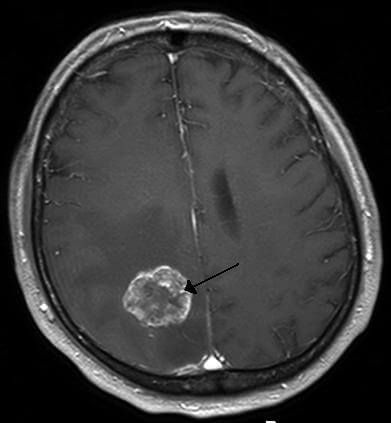The significance of this sensational discovery is that it will be possible to develop possible treatments and drugs targeting these two genes, which will prevent the development of brain metastases among lung cancer patients

About 40% of metastatic lung cancer patients will develop brain metastases and the life expectancy of these serious patients is only a few months. Only if the brain involvement is low, 60% of these patients will survive two years or more. Metastases in the brain are formed from cancer cells that "escape" from the primary tumor, such as lung cancer, breast cancer or melanoma, migrate in the blood, reach the brain and form additional (secondary) tumors of the same primary tumor, metastases.
Results will be published in the medical monthly Acta Neuropathologica this December study whose purpose is to check which genes signal to those lung cancer cells responsible for the development of brain metastases that must leave the original, primary tumor, migrate in the bloodstream, reach the brain, penetrate the same dense network of cells that prevents substances from passing from the bloodstream into our brain (also called the "blood barrier" - Brain" or BBB, Blood Brain Barrier) and create a cancerous, secondary tumor in it, originating from lung cancer.
The research revealed two such signaling genes called: SPOCK1 and TWIST2. Among lung cancer patients who had brain metastases, these two genes appeared in the primary tumor in the lung and among metastatic patients who did not have brain metastasis, these two genes did not appear in the primary tumor at all.
The significance of this sensational discovery is that now and in the future, it is possible to develop possible treatments and drugs targeted at these two genes, which will prevent the development of brain metastases among lung cancer patients. In this way, 40% of metastatic lung cancer patients will live longer and without the brain damage and its consequences on their daily functioning. Until these advanced treatments are approved, the only way to receive them is as part of a clinical study and there is no lung cancer patient who would not want to know about these treatments and receive them as soon as possible.
Entrepreneur Nir Erez, who operates a new service for cancer patients - TRIAL-IN Pharma: Lung cancer is the leading cause of death among men with cancer and the third cause of death among women with cancer. 1 out of 4 men who got cancer died from lung cancer and among women who got cancer, 1 out of 8 died from lung cancer in the same year. Against the background of lung cancer awareness month (November), it is also important to note absolute numbers: about 770 women and about 1,500 men died of lung cancer, a total of close to 2,300 people, about 6 lung cancer patients died every day. Every year in Israel about 11,000 people die of cancer and between 25,000 and 30,000 new cancer patients are diagnosed. In total, there are over 115,000 cancer patients in Israel who are treated by only 260 oncologists under a huge burden and an acute lack of standards. The patients, emphasizes Nir Erez, must be aware of the situation and take responsibility for the management of the disease.
Trail in Pharma's new service helps cancer patients find and receive treatments that are at the forefront of science in addition to the standard protocols offered to them. Access to these treatments, some of which have been defined as 'groundbreaking' by the health authorities, such as the FDA, is made possible mainly in research and compassion frameworks all over the world. Through the service, the patient can receive these treatments today, for free, and with the chance to profit from them years before they are approved and available in the health basket. The service continues with the professional-medical accompaniment of the patient and the oncologist, until the treatment is obtained anywhere and from anywhere in the world.
